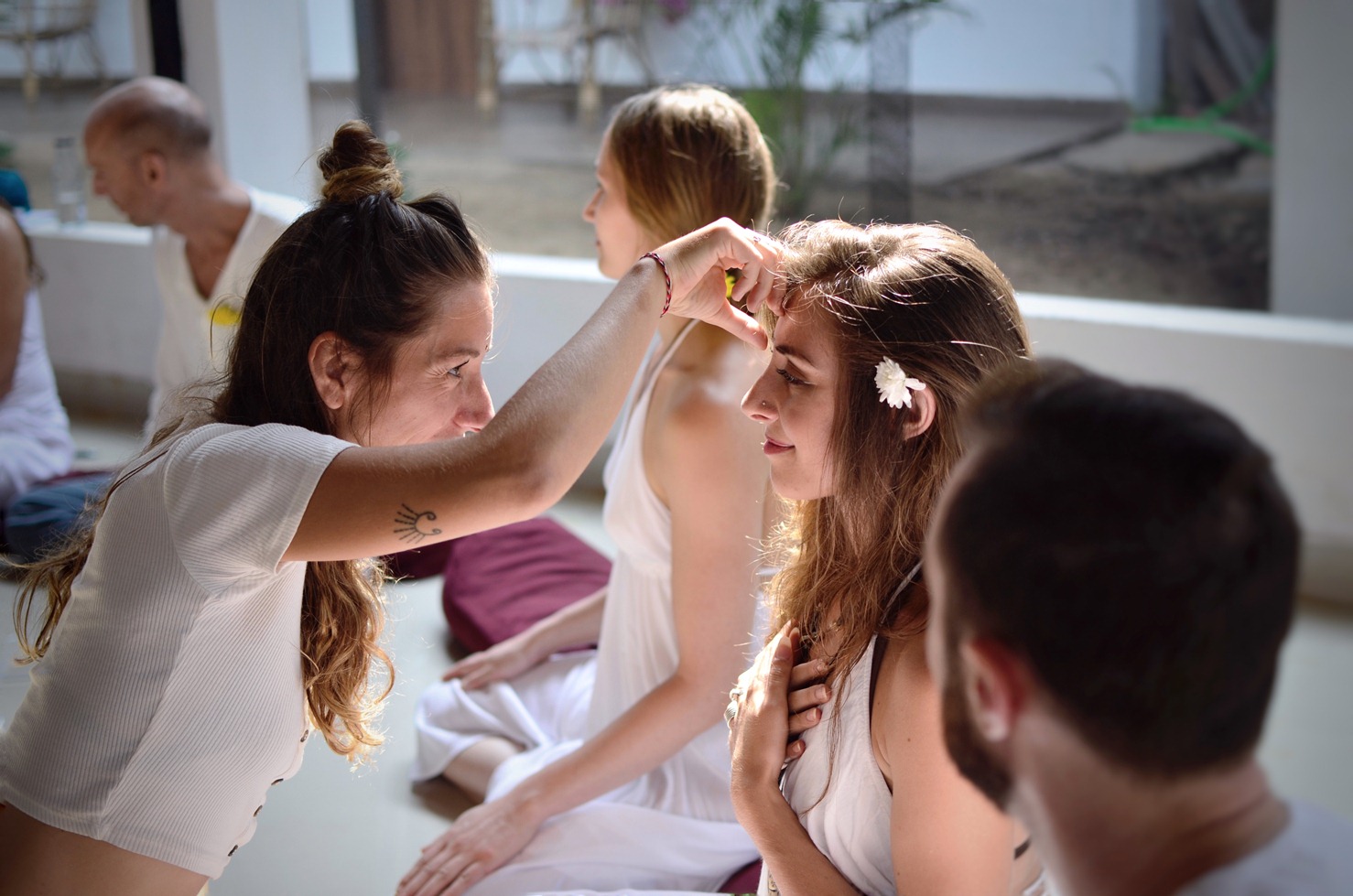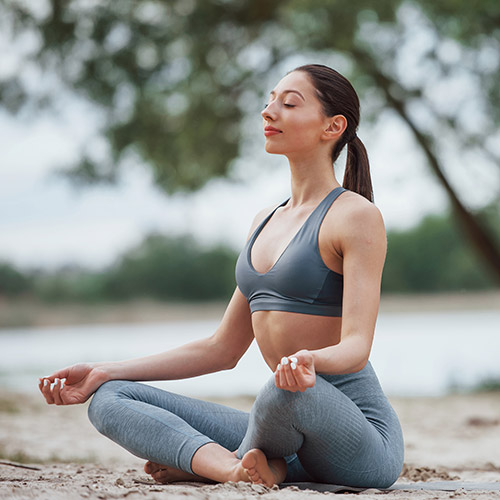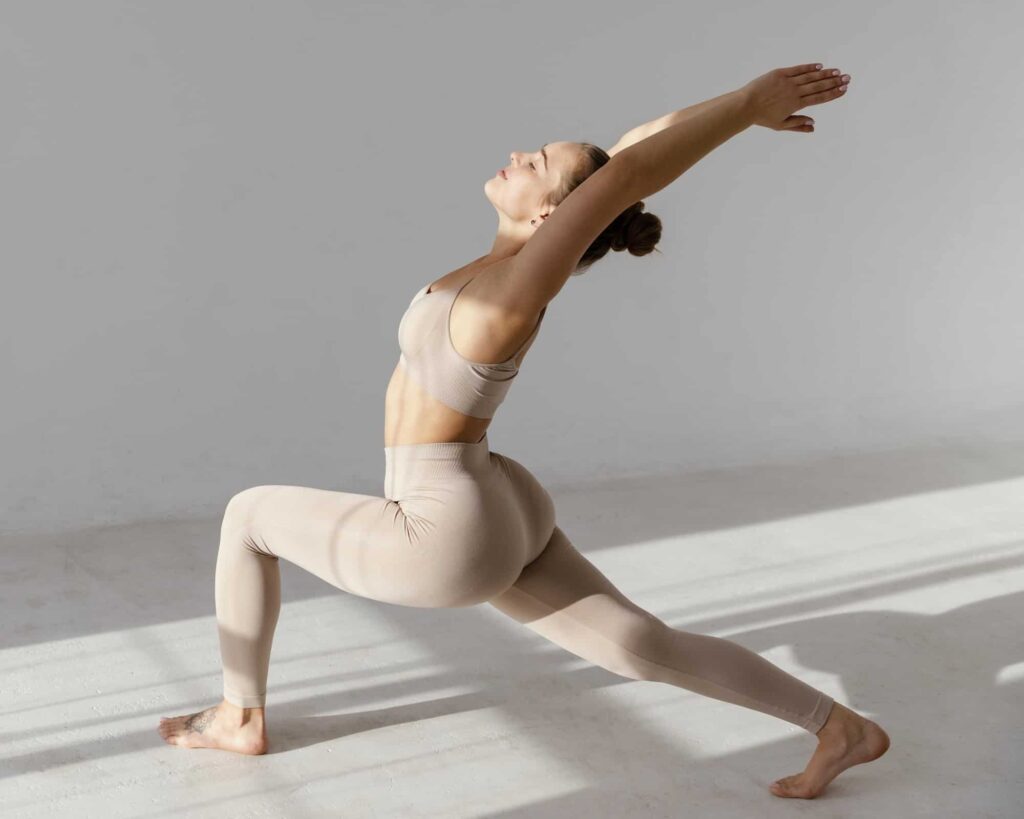Can you teach yoga without certification?

Teaching yoga on a luxury private island, being able to work flexible hours, and getting paid to spend all day with no shoes on… These are some of the reasons you may be dreaming of packing in your ‘9 to 5’ and becoming a yoga teacher. But what if you don’t have time or money to attend a yoga teacher training? Can you teach yoga without certification?
Can you be a yoga instructor without certification?
Yoga is a profession, and all professions require certifications to prove that the instructor is qualified to charge money for their services. This is usually regulated through a governing body or accreditation organization; for yoga, this is Yoga Alliance. Yoga teachers can choose to register with Yoga Alliance (if they have taken a yoga teacher training from a Yoga Alliance registered yoga school) and this gives them extra credibility, as employers and future students know they have received a certain standard of education. Registering with Yoga Alliance is, however, voluntary. You do not need to be a registered yoga teacher in order to teach yoga.
Technically, anyone could set themselves up as a yoga teacher and start a yoga career teaching their own yoga classes either online (on their own platform) or in person (their own yoga studio or home, or outdoors with approval from the city council, etc.). Whilst you don’t need a yoga teacher certification to begin teaching yoga as a yoga entrepreneur (not employed by anyone), most yoga students (or people you’re advertising to) will want to know that the yoga teacher is competent, educated, and experienced, so that they are not learning something incorrectly, and so that they are kept safe (i.e. to avoid injury). Speaking of, you will only be able to get (personal liability) insurance if you can show yoga teaching certifications. Not having insurance means that you may be open to lawsuits if a yoga student gets injured in your class (or even entering/leaving the room if it’s your own space), which is also more likely if you haven’t had the training on how to prevent injuries, etc.
So much for working for yourself, but what about if you want to teach yoga in a yoga studio, hotel, retreat centre, or anywhere you would be employed by someone else? In that case, the answer is no; you cannot become a yoga instructor without certification. That’s because any employer will need to see your teaching certification as proof that you are capable of teaching and to protect their clients/students from injury. It also protects them legally because their own insurance policies will require that all yoga instructors are certified. Even if you simply want to rent a space to teach yoga, the business/property owner may ask to see your yoga teaching certification, especially if the space is related to yoga (such as a holistic therapy centre), as it reflects badly on them if people discover that the yoga teacher is not suitably qualified.
Can you teach yoga without experience?
But what about teaching yoga without experience? One of the many reasons we recommend gaining your yoga teaching certification is that good yoga teacher trainings give you experience in teaching and leading a yoga class. Some trainings even give you the opportunity to teach (for free) the public during the yoga teacher training course. So, even if you’ve never taught paying students before, you finish the training with teaching experience and will have the tools, knowledge, and (hopefully) confidence to jump straight in. In this case, you can definitely teach yoga with no previous experience.
However, if you want to teach yoga without certification and have no experience, we would not recommend this, for your sake as well as your students. While technically it may be possible to become a yoga instructor with no experience and without certification (only if you are self-employed, as previously discussed), the most significant disadvantage of not attending a training program is that you won’t be prepared on how to structure a class, how to teach, what to look out for in terms of student injury, and so on. Not only will this be stressful for you, but it will also not be a very enjoyable experience for your students. There’s only so much you can learn from YouTube and attending other people’s yoga classes!
In short, while you can teach yoga without certification and without experience (under certain circumstances), we do not recommend it. You will not progress your yoga journey, nor learn valuable teaching skills, without completing a yoga teacher training, not to mention you risk injuring your students as you will not have the knowledge or experience to guide them safely in and out of poses.
You also open yourself up to lawsuits and potential criminal charges if something goes wrong, as you won’t be insured. If you hope to become employed as a yoga teacher, working in yoga studios, or in hotels, retreat centres, etc., then you must be a certified yoga teacher.
You also need yoga teacher certification if you want to register with Yoga Alliance. While not all employers require their yoga teachers to be Yoga Alliance-registered, if you want to eventually teach other yoga teachers, or start your own yoga school offering yoga teacher training courses, then you must register with Yoga Alliance (and have a certain number of years of experience, and meet certain other criteria, such as regular continuing education courses).
Here are 6 other reasons why undertaking a yoga certification course is so important:
- You’ll learn how to skilfully create interesting and creative flows and to incorporate other elements into your classes (like stories, poems, and themes) that your yoga students will love.
- You’ll learn basic anatomy and physiology, improving your own understanding of the human body and how yoga affects it. This can also enhance your own yoga practice as you learn what your body is doing in each pose and gain deeper bodily awareness.
- You’ll make friends for life. A yoga teacher training is a profound and transformational experience. Going through this with a group of other like-minded people can’t help but bond you for life.
- You’ll learn more about yoga philosophy and history. One of the crucial things you learn on a teacher training is the lineage of yoga (especially if you’re learning a particular style) and how to honour this lineage. This means you can then teach yoga in a respectful and educated way. This is also important for specific styles of yoga, such as Ashtanga yoga, which should only be taught by yogis who have studied the tradition and rituals.
- You’ll become a better yoga teacher. At the end of the day, you want to be the best yoga teacher you can, not least because this means people will keep coming back to your classes and you’ll be more successful! By attending a yoga instructor certification program, you’ll be exposed to the lead teacher’s teaching style and extensive teaching experience. Combined with the theory and knowledge you learn, the feedback from your yoga instructors, and the opportunity to practice teaching, this will help improve your own teaching and boost your confidence, knowing that you have a solid training under your belt.
- If you want to teach a specific style of yoga that poses even greater risks to students, or where injury is more likely or could be more severe, such as aerial yoga or children’s yoga, then you must undertake a yoga teacher training in that style. It would be unethical to teach these styles without proper training and education.
So, you’ve decided you want to become a certified yoga teacher; what are the first steps?
The step to becoming a certified yoga teacher is to attend a 200 hour yoga teacher training. This can be an in person training or an online course, but we recommend gaining your yoga certifications only from Yoga Alliance registered yoga teacher training schools, so that you can be sure the quality is of a high standard. This is also crucial if you want to register with Yoga Alliance once you have your yoga teacher certification. Yoga Alliance registered yoga teachers can then open yoga schools offering yoga teaching certifications, or you might choose to gain more yoga teacher certifications (attending a 300 hour yoga teacher training, for example) and learn more yoga techniques.
Conclusion
While you can, in some circumstances, teach yoga without certification, attending a 200 hour yoga teacher training allows you to successfully teach yoga and will take your yoga career to the next level. Becoming a certified yoga instructor will allow you to make a name for yourself in the yoga industry, or to start your own yoga business. Maybe you want to sell yoga courses or eventually train other teachers? Becoming a registered yoga teacher will allow you to do all this and more. Plus, there are so many options these days, with training programs to suit every budget and that can fit around your life (such as part-time, online yoga teacher training courses), there’s no good reason not to gain your yoga teacher certification. Trust us, it’s a life-changing experience that you won’t regret!
Reference: https://www.allyogatraining.com/can-you-teach-yoga-without-certification



